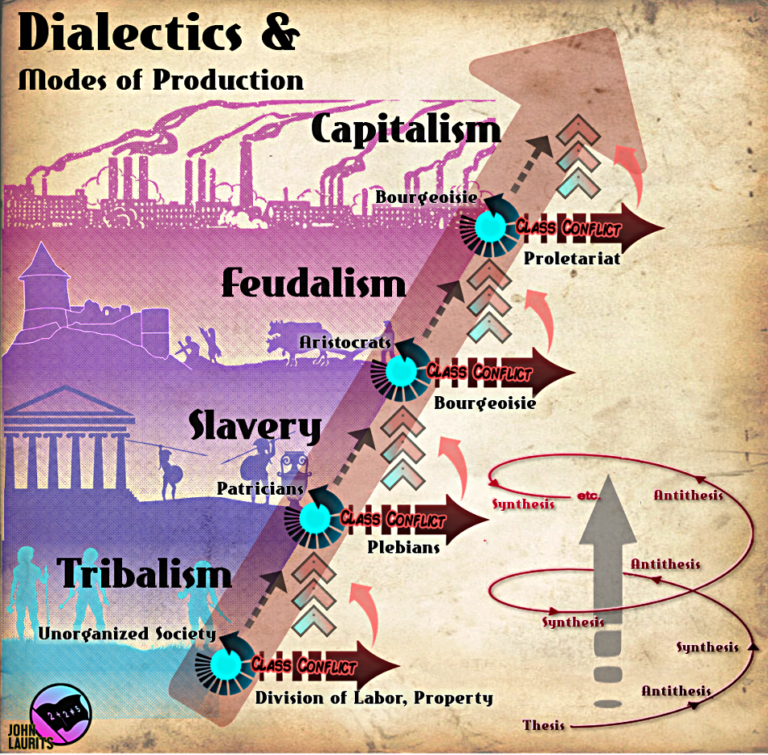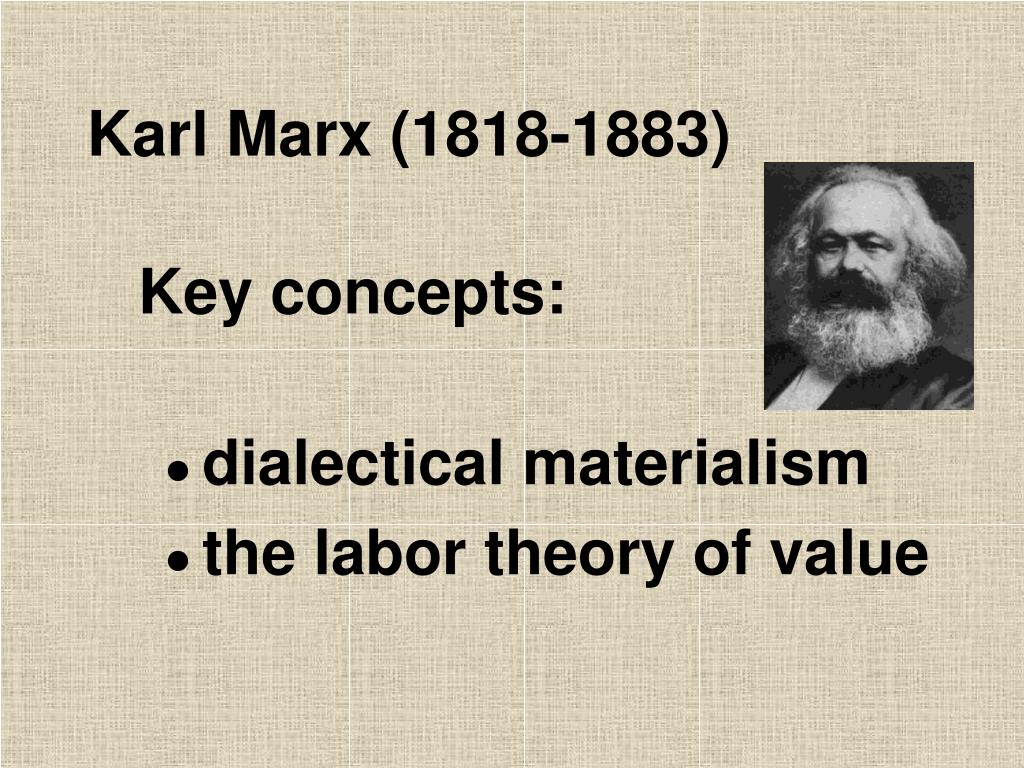
/Karl-Marx-Sean-Gallup-Getty-Images-58b88d5f5f9b58af5c2d9e0a.jpg)
In most of human history according to Marx, these relationships are class relationships that create class struggle. It is not that people produce out of material greed or the greed to accumulate wealth, but the act of producing the essentials of life engages people into social relationships that may be independent of their will. Human will is not a passive reflection of events, but contains the power to rebel against circumstances in the prevailing limitations of human nature. And human nature is potentially revolutionary. If human nature is what human beings make history with, then at the same time, it is human nature which they make. Human nature is neither originally evil nor originally good, it is in original potential. According to Marx, there is no permanent persistence of human nature. This relates to the concept of man in general. There is one other basic assumption behind historical materialism without which the theory cannot be held together. Both these assumptions relate to the nature of human society.ģ. Such changes if observed in a large number of instances, according to Marx, show a sufficient degree of regularity to allow the formulation of general statements about their causes and consequences. Marx views society as inherently mutable, in which changes are produced largely by internal contradictions and conflicts.

Marx’s views on human society and human nature:Ģ. It is this unique combination of scientific and revolutionary characters which is the hall mark of Marx’s original formulation.

At the same time it also claims to contain within it a revolutionary programme of intervention into society. As a theory it provides a scientific and systematic research programme for empirical investigations. It is best understood as sociological theory of human progress. But it is not strictly speaking, a philosophy of history.

Historical materialism is based upon a philosophy of human history. This eventually became a mature sociological conception of the making and development of human societies. This was without recourse to what may be considered as metaphysical explanations clearly outlined in those early writings of Hegal and his followers. Marx’s theory sought to explain all social phenomena in terms of their place and function in the complex systems of society and nature. We shall say that both of them used this theory, to quote Marx, as the “guiding thread” of all their works. Materialism simply means that it is matter or material reality, which is the basis for any change.Īccording to Friedrich Engels, the theory of historical materialism was discovered by Karl Marx, but Marx thought it was Engels who has conceived the materialist formulation of history independently. It is called Materialistic because Marx has interpreted the evolution of societies in terms of their material or economic bases. It is historical because Marx has traced the evolution of human societies from one stage to another. Marx’s theory of historical materialism is historical. His theory is that material conditions essentially comprise technological means of production and human society is formed by the forces and relations of production. Materialism is the basis of his sociological thought because for Marx material conditions or economic factors affect the structure and development of society. Marx’s general ideas about society are known as his theory of historical materialism.


 0 kommentar(er)
0 kommentar(er)
